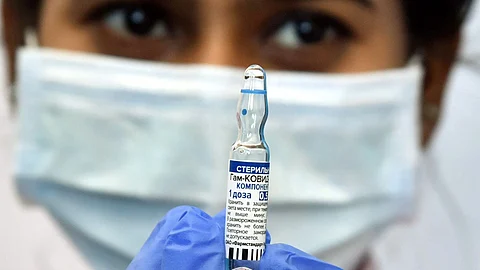
🔧 We’re Under Maintenance
We’ll be back shortly. Thank you for your patience.
We’ll be back shortly. Thank you for your patience.

The US and WHO are snubbed by member nations. The decision, tabled at the Global Health Summit in Rome yesterday, will hinder India’s battle against a deadly second wave of the pandemic.
The decision by the US administration to lend an ear to the pleas by India, South Africa and other developing nations to call for a temporary waiver of patents for Covid-19 vaccines may have fallen short.
The requests by India, battling a lethal second wave of the Covid-19 pandemic which is threatening to bring the country’s healthcare system to its knees, and other nations was to ensure that the decision if adopted by member nations of the World Health Organisation (WHO) would boost production and allow a fairer distribution of vaccines across the world.
According to a report by Reuters, leaders of the world's largest economies back "voluntary licensing" of COVID-19 vaccine patents, the draft conclusions of a summit show, watering down a US push for waivers and earlier commitments to supply more funds to the World Health Organization.
The draft document has also listed commitments of G20 nations and other countries and is to be adopted on Friday at a Global Health Summit in Rome, one of this year's major events to coordinate global actions against the pandemic.
The draft, which is still subject to changes, is the result of a compromise among experts from G20 nations which remain divided over the waiving of intellectual property rights for COVID-19 vaccines.
Call for the temporary waiver
The Biden administration earlier in May joined India, South Africa and many other developing countries in calling for a temporary waiver of patents for COVID-19 vaccines, in the hope that it would boost production and allow a fairer distribution of shots across the world.
The decision by the US government to seek a waiver for vaccine patent rights was always going to be a topic that would be constantly under the scanner given that it was a complex issue between the WHO’s 164 member nations who have differing viewpoints.
The US’s push for the waiver, if it had been operationalised, would allow each state to authorise the production of patented vaccines without the consent of the pharmaceutical companies holding the patent. Washington had only proposed for a waiver on vaccine IP rights and did not seek consideration for other products such as diagnostics, treatments, ventilators, respirators, syringes and refrigerators maintaining low temperatures during storage and transport of doses.
Consensus among European Commission
It is understood that the doubts raised by the EU and other notable vaccine making nations were focused on mainly on removal of US export restrictions on vaccine raw materials, the transfer of know-how and voluntary cooperation among vaccine makers to ensure a much quicker ramping up of global production. These views, however, did not make mention of patent waivers. There is consensus that these views were influenced by the European Commission, one of the hosts of Friday’s summit, together with the Italian government which holds the G20 presidency this year.
Instead of being in favour of a patent waiver the G20 leaders could agree to a system known as ‘patent pooling’ which is less drastic. A patent pool would have ensured that drugmakers decide voluntarily to share licences for the manufacturing of their products in poorer nations.
Apart from the setback that this decision could cause India, which is battling to control the spiralling infection and death rates brought about by a strong Covid-19 variant in a second pandemic wave, it is also a rebuke for WHO which was wanting to push out a scheme to accelerate the distribution of COVID-19 vaccines, drugs and tests across the world.